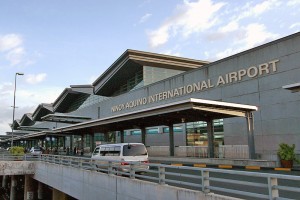
(Eagle News) — The Ninoy Aquino International Airport (NAIA) and other airports in the country continue to be on heightened alert because of the deadly Middle East Respiratory Sydrome-Corona Virus or MERS-CoV and other deadly diseases such as Ebola, following guidelines from the Bureau of Quarantine.
Currently, MERS-CoV has more than 180 reported cases in South Korea, where at least 27 have already died. It is the only country outside of Saudi Arabia where there is a MERS-CoV outbreak.
On the other hand, the Ebola epidemic continue to also be on concern, as quarantine officials also place on a 21-day quarantine those coming from West Africa, including Guinea and Sierra Leone, according to the Bureau of Quarantine. The deadly Ebola virus has killed more than 11,000 people in Guinea, Liberia and Sierra Leone.
Liberia, which was earlier declared Ebola virus-free, also reported the emergence of new cases of Ebola, as well as in Guinea and Sierra Leone, according to recent reports from the World Health Organization.
https://youtu.be/cbPvXUpkgDQ
The Bureau of Quarantine, through its earlier memorandum circular, has directed airports to heighten surveillance and to enforce health screening measures on passengers and crew arriving and departing at the airport.
It instructed quarantine officials at NAIA to issue health checklists and notices to passengers. It also directed health officers to operate thermal scanners at the arrival areas of the airport.
As a matter of procedure, pilots and aircraft crew are instructed to report in advance passengers onboard who may have flu-like symptoms to any health officers at NAIA.
Bureau of Quarantine officials said this circular continue to be implemented.
According to the US Centers for Disease Control (CDC), the Middle East Respiratory Syndrome (MERS) is an illness caused by a virus (more specifically, a coronavirus) called Middle East Respiratory Syndrome Coronavirus (MERS-CoV).
MERS affects the respiratory system (lungs and breathing tubes). Most MERS patients developed severe acute respiratory illness with symptoms of fever, cough and shortness of breath. About 3-4 out of every 10 patients reported with MERS have died. Most of the people who died had an underlying medical condition. Still, some infected people have mild symptoms (such as cold-like symptoms) or no symptoms at all, according to a CDC fact sheet.








